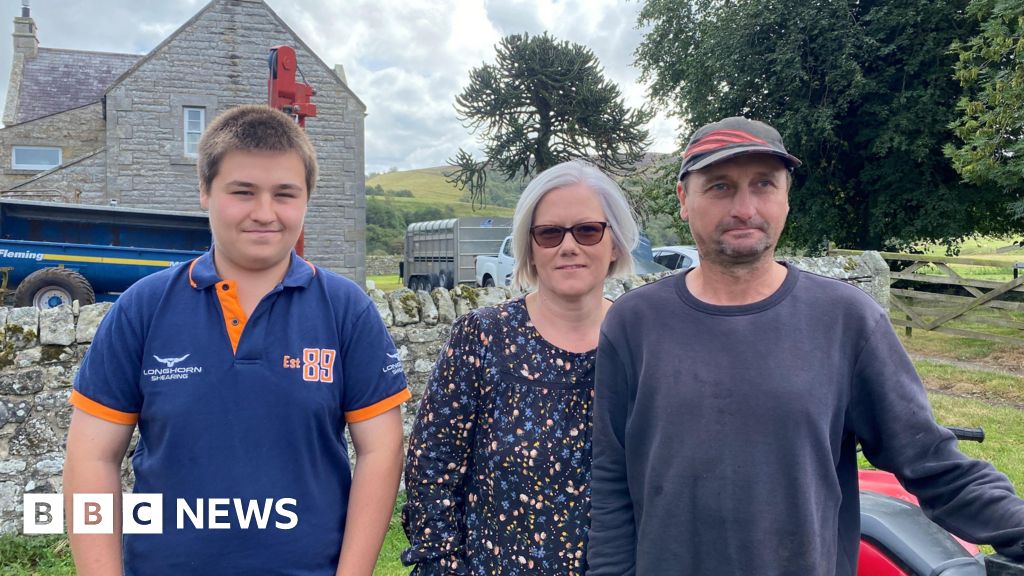Farming families finally get mains electricity after 50 years
- BBC News
Half a century ago, people living in one of the most remote areas of England made a plea to be connected to mains electricity. Now, at last, some of the current hardy residents can experience joys such as hair straighteners on demand and not having to plan cups of tea.
The farms and cottages of the Upper Coquet valley in Northumberland have always been off grid, reliant on noisy expensive generators.
From a window of one of those farmhouses, Shona Anderson looks out on to a view generations of families in the area thought might never exist.
A row of newly erected electricity poles.
"I was at work and Scott my husband rang and said its live, were on mains power and I hardly dared believe it," Shona says.
"I keep flicking the lights on and off and thinking thats mains power."
Four generations of the Anderson family have lived in the valley, but in recent times Shona, Scott and their three sons have rented a house elsewhere, with Scott returning each day to work on the farm.
There were structural problems with the farmhouse, but they also got tired of a generator that "often broke down".
"We would sometimes book a caravan somewhere when that happened," Shona says, "just to have power".
"It was like living in the olden days," her son T-jay adds.
"Having to go out in the dark every time the generator conked out."
Mains electricity means they are back in the house Scotts grandmother was born in and he has a legacy to cement.
"I want to build the farm up and see future generations here," Scott says.
"T-jay wants to take it on and mains power will make life easier for him and those after him."
The valley missed out on the electrification programmes of the 20th Century.
For many years, the community of fewer than 50 people dotted along a single track road winding into the Cheviot Hills was told a connection would be too expensive.
But when the government decided an electricity supply was needed to three emergency telecommunication masts in the valley, an opportunity arose to connect many of the properties too.
Funds for the project were then found by the Home Office and Ministry of Defence (MoD) which owns the land.
The valley is within the Northumberland National Park and its planning authority initially wanted all the lines buried.
A compromise was agreed which saw the construction of nine miles (15km) of overhead line and three miles (4.7km) go underground.
Among the homes connected so far are two that were formerly served by a single generator.
The shared source meant neighbours Jaycee Charlton and Katherine Singer could never boil the kettle at the same time because it would plunge them both into darkness.
"Its happened" they confirm as they watch an engineer switch their energy supply from the generator to mains.
"Hair straighteners, I wouldnt dare put them on if the kettle was on too," says Jaycee.
And now? "Youre not going to have to think so much about all that sort of thing."
Katherine, meanwhile, is looking forward to being able to go out without worrying about the power going off in their absence.
"Its a real opportunity to diversify the farm too," she adds.
The work was carried out by Northern Powergrid, with the company saying the project posed "unique challenges" and that it had been a "technically complex scheme."
It said it had given special consideration to the "unique landscape of Upper Coquetdale", with cables running below ground "wherever possible to preserve the areas natural beauty and reduce visual impact".
Some in the valley have not got rid of the loud chugging of the generator quite yet.
Harry and Megans Byatts farm was one that was judged too remote and there remain hundreds of other homes in Northumberland still off grid.
"We know were the lucky ones, says Katherine.
"But were just so grateful to everyone who has worked so hard to make this happen."
Follow BBC North East on X, Facebook, Nextdoor and Instagram. Send your story ideas here